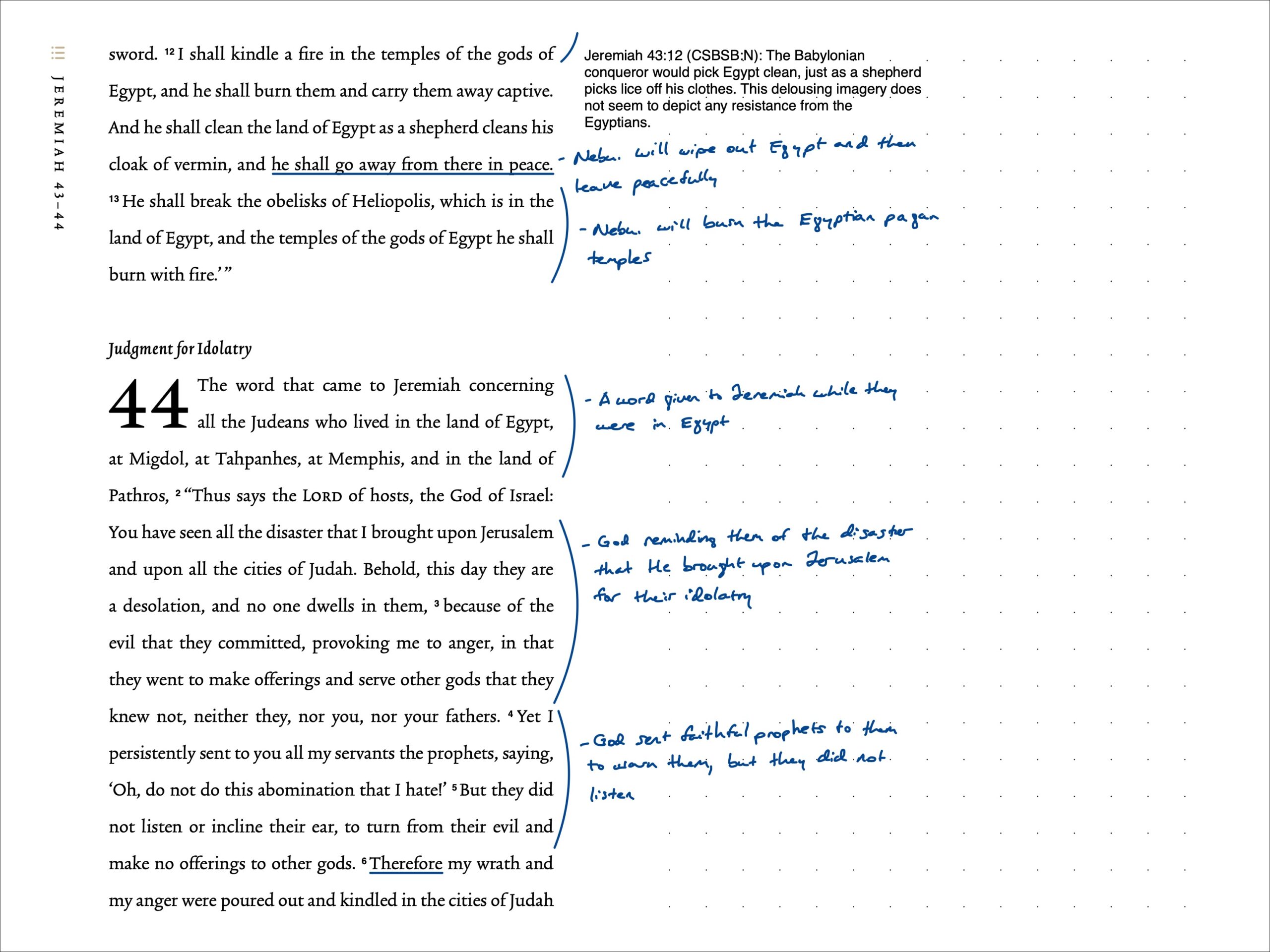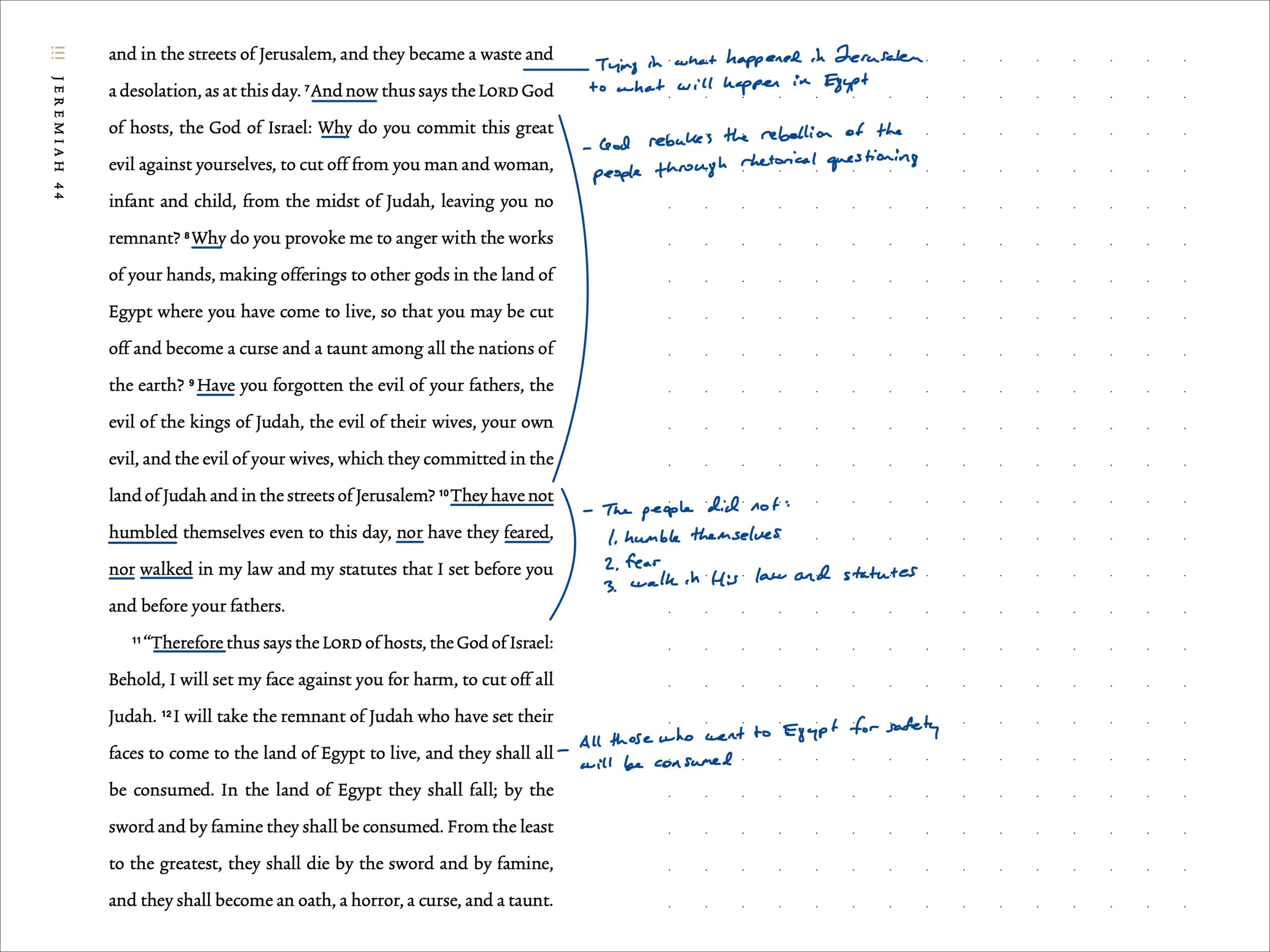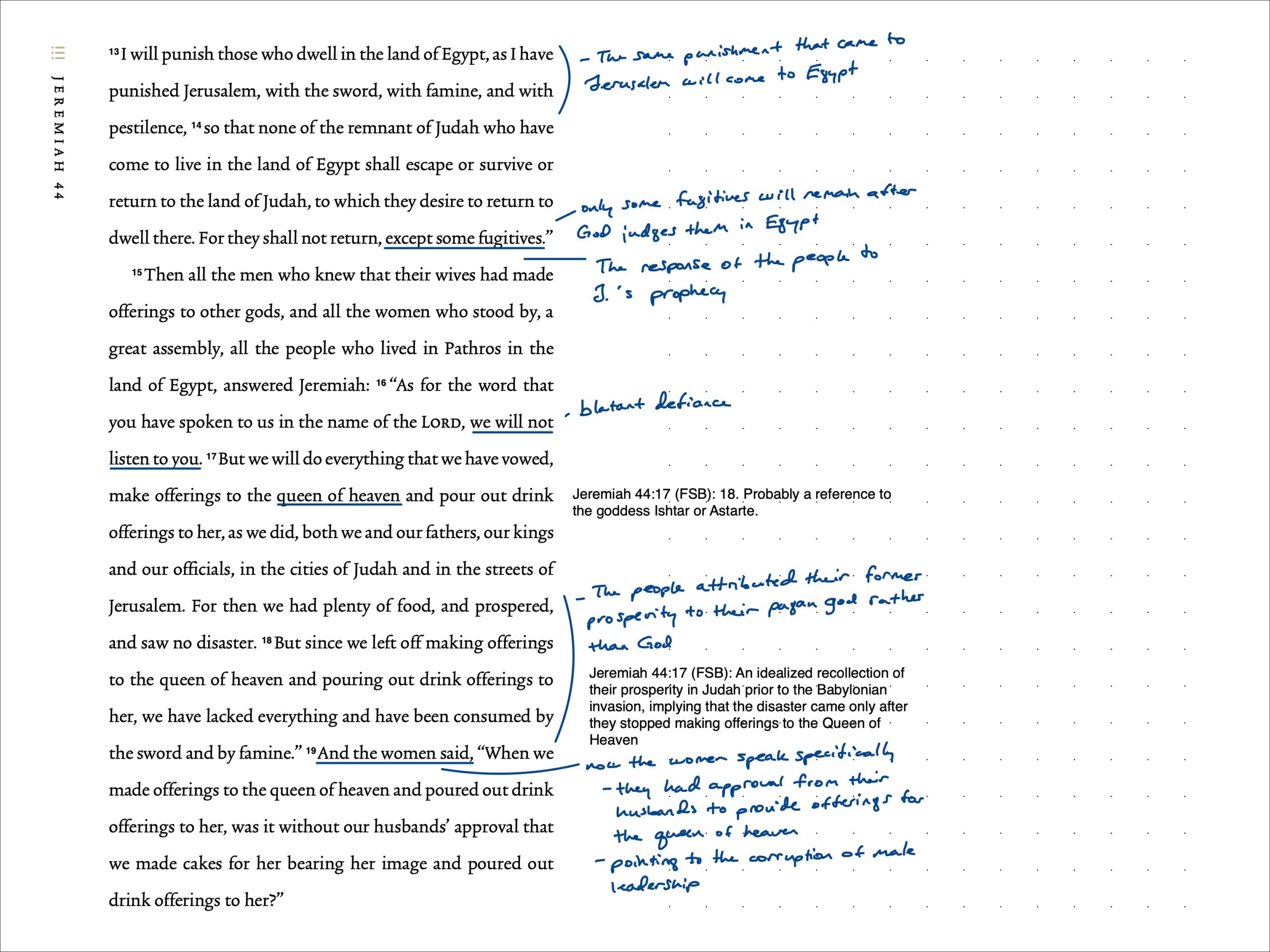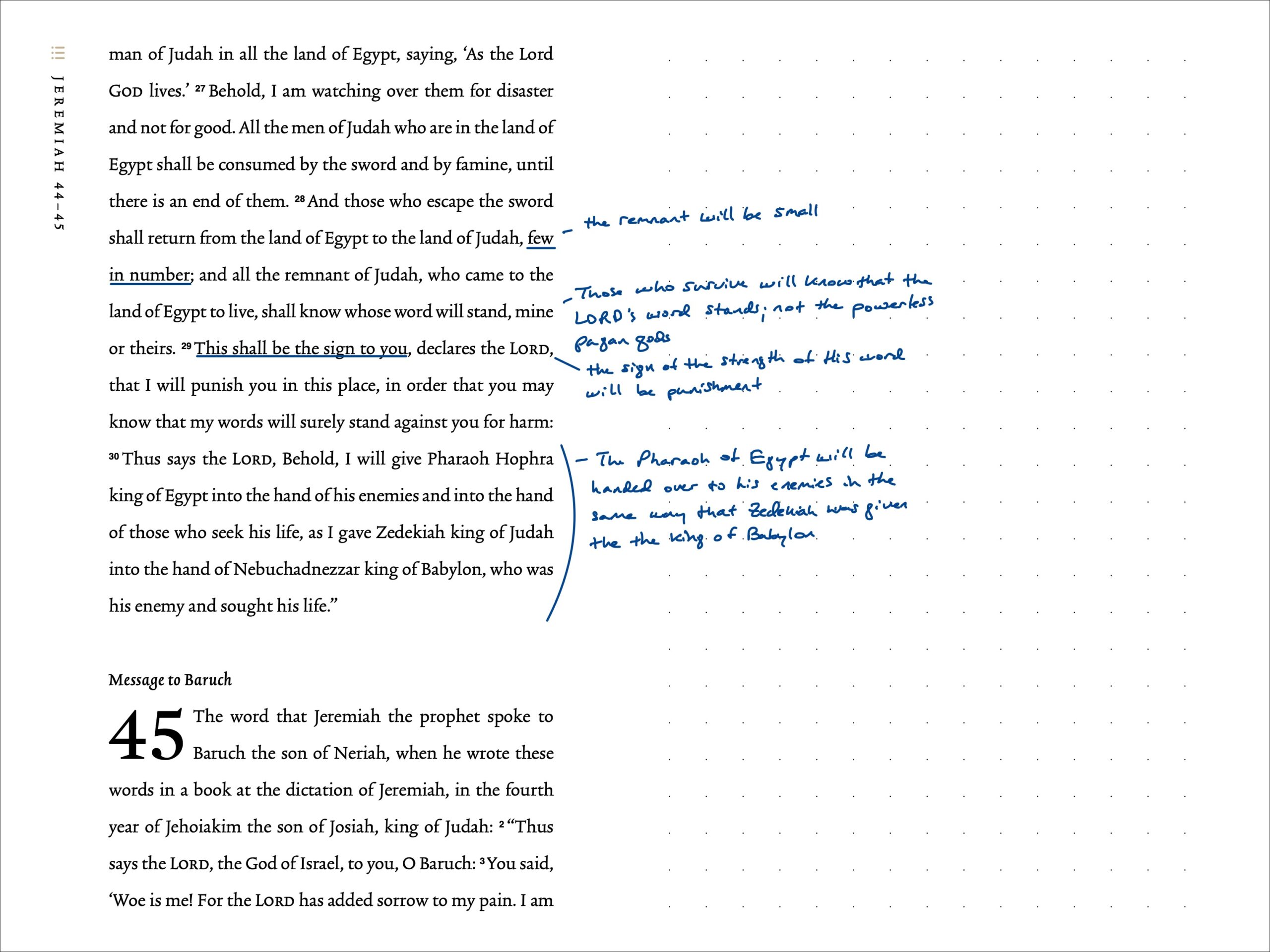| Date | Version | Reading Plan |
|---|---|---|
| @August 6, 2023 | ESV (2016) | ESV Prophets Plan 2023 |
Pericopes
- Judgment for Idolatry
Notes
The chapter opens with a word of the LORD that came to Jeremiah while he and the remnant were in Egypt. God reminded them of the disaster he had employed against Jerusalem and that he had sent faithful prophets to warn them. It was because they did not listen that He poured out His anger “in the cities of Judah and in the streets of Jerusalem” (Jer. 44:6).
In Jer. 44:7, God ties the judgment of Judah to the impending judgment on Egypt. He rebukes the rebellion of the people through rhetorical questioning, asking why they committed a great evil against Him (Jer. 44:7), why they provoked Him to anger (Jer. 44:8) and if they had forgotten the evil of their fathers (Jer. 44:8). Further reasoning for the judgement is given in Jer. 44:10 that the people had not 1) humbled themselves, 2) feared Him and 3) walked in His law and statutes.
Jer. 44:11-14 sets forth the punishment they will experience for their apostasy. God will set His face against them and all who fled to Egypt to find safety will be consumed (Jer. 44:12). The same punishment that came to Jerusalem will come to Egypt (Jer. 44:13) and only a handful of fugitives will be left (Jer. 44:14).
In 44:15-19, the people respond to Jeremiah’s prophecy in blatant defiance. They attributed their former prosperity to their faithfulness to the pagan god, the “queen of heaven”, rather than the true God of all creation. The “queen of heaven” is probably a reference to the goddess Ishtar or Astarte. The women speak specifically in Jer. 44:19, asking rhetorically whether their husbands withheld approval for offering sacrifices to the queen of heaven. The implied answer is that approval was given, pointing to widespread corruption of male leadership and guidance.
In Jer. 44:20-23, Jeremiah responds to the people that the LORD remembered all of the offerings they had “offered in the cities of Judah and in the streets of Jerusalem”. Jeremiah clarifies that it was BECAUSE they offered sacrifices to pagan idols, not their lack of faithfulness to them, that God had brought His wrath in judgment.
The remaining verses (Jer. 44:24-30) are of another address by Jeremiah to all the people and women that, because of their insolence, they will no more invoke God’s name (Jer. 44:26). God will watch over them for disaster and not for good and all men shall be consumed by sword and by famine (Jer. 44:27). Only a small remnant will be left and those who survive will know that it was the LORD’s word that stood, not the powerless pagan gods (Jer. 44:28). In the final verse (Jer. 44:30), God speaks of how He will hand over Pharaoh Hophra of Egypt to his enemies in the same way that He previously handed over Zedekiah, king of Judah, over to the Nebuchadnezzar, king of Babylon.
Application
The consequences of the people’s decision to defy God and flee to Egypt are in full force in this chapter. Jeremiah’s word of warning on the LORD’s behalf was not only rejected, they had the gall to ascribe their prior plenteousness to their worship of their pagan god, the queen of heaven. It was defiance on top of defiance.
While we no longer worship the queen of heaven, we do have the idols of pride, autonomy and self-sufficiency. We can so often attribute success to our own abilities, neglecting how these were gifted to us by a gracious and all-powerful Creator. Our posture should be of perpetual thankfulness, praising His great name and rightly crediting Him as the bestower of all good things.
Scripture Journal Notes
Commentaries & Resources Used
- ESV Study Bible. (Wheaton, IL: Crossway, 2008)
- Faithlife Study Bible (Lexham Press, 2016)
- Believer’s Bible Commentary (Thomas Nelson, 2016)
- CSB Study Bible Notes (Holman Bible Publishers, 2017)
- Matthew Henry’s Commentary on the Whole Bible (Guardian Press, 1976)
- The Bible: A Reader’s Guide (Sterling Publishing, 2011)
- The Infographic Bible (Zondervan, 2018)
- ESV Digital Scripture Journal (Crossway, 2019)




